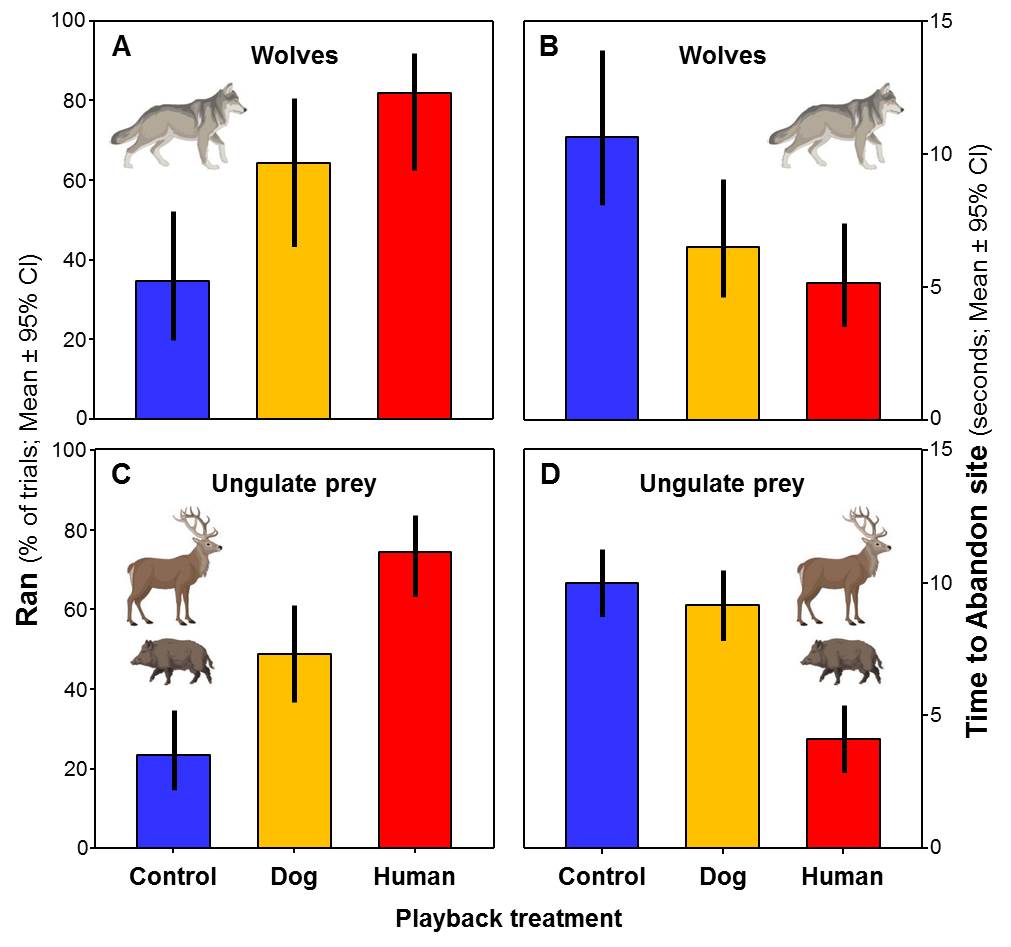

| We
developed an Automated
Behavioural Response system (ABR)
comprising a custom-built motion-sensitive speaker system that can be
paired with any commercially available camera trap, providing the means
to conduct playback experiments directly testing the behavioural
responses of any species that can be ‘caught’ on a camera trap. The ABR
provides the ability to experimentally test virtually any animal
anywhere, 24 hours per day, without the need to have an observer
present; creating vast new opportunities to explore the behaviour of
rare or nocturnal or potentially dangerous species, as well as those
with an aversion to humans, which our ABR experiments are showing –
appears to be most species (visit our Collaborations
page for details). |
||
|
Our Upgraded ABR Model: Collaborations Welcome We built our original ABR model (Mark 1) in 2015 and tested it in Uganda, and then developed a second model (Mark 2) and tested it in British Columbia (Canada) and California (USA) as detailed in our paper describing the ABRs [PDF]. We have since vastly upgraded the ABRs and are now using a Mark 4 system, which possesses programming permitting broadcasting of playbacks sequentially, randomly, at scheduled times, or sequentially or randomly within scheduled times. Moreover, the Mark 4 now produces amazing HD videos (as shown below). The experiments described under the Collaborations tab which we conducted in South Africa, Eswatini, Georgia (USA), Sweden, and Australia were all accomplished using Mark 4 ABRs. We received a large grant to obtain 100 Mark 4 ABRs, and are happy to collaborate with anyone on their use anywhere. To contact us concerning collaborating in use of our ABRs, please send us an email. |
|
 |
 |
| Where we have Conducted Experiments with the ABR | Our Newest Model (Mark 4) of ABR in South Africa |
Fear of the “big bad wolf” dominates the discourse on human-wildlife conflict. Humans fear wolves, and fear wolves “losing their fear” of humans – because if they fear us, they avoid us, and that protects us. Legal protection of wolves has been alleged to permit the emergence of “fearless” wolves. We conducted an unprecedented experiment demonstrating that wolves fully retain their fear of humans, even where they are legally protected. Our results help re-focus the discourse on human-wolf conflict, from ostensibly fearless wolves, to human food subsidies better explaining why fearful wolves ever risk encounters with the human “super predator”.
